Uncategorized
-
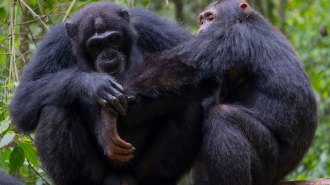 Animals
AnimalsWild chimpanzees give first aid to each other
A study in Uganda shows how often chimps use medicinal plants and other forms of health care — and what that says about the roots of human medicine.
-
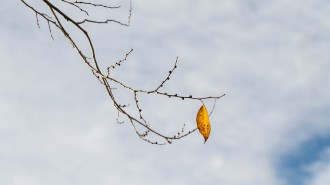 Plants
PlantsA leaf’s geometry determines whether it falls far from its tree
Shape and symmetry help determine where a leaf lands — and if the tree it came from can recoup the leaf’s carbon as it decomposes.
-
 Health & Medicine
Health & MedicineHumans have shockingly few ways to treat fungal infections
It's not quite as bad as The Last of Us. But progress has been achingly slow in developing new antifungal vaccines and drugs.
-
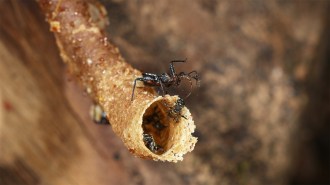 Animals
AnimalsThis tool-wielding assassin turns its prey’s defenses into a trap
This assassin bug's ability to use a tool — bees’ resin — could shed light on how the ability evolved in other animals.
-
 Chemistry
ChemistryA chemical in plastics is tied to heart disease deaths
In 2018, over 350,000 excess heart disease deaths were linked to phthalates. More research is needed to fully understand the chemicals' effects.
By Skyler Ware -
 Environment
EnvironmentSkyborne specks of life may influence rainfall patterns
A study of weather on a mountain in Greece reveal that bioparticles in the sky may drive fluctuations in rainfall patterns more broadly.
By Nikk Ogasa -
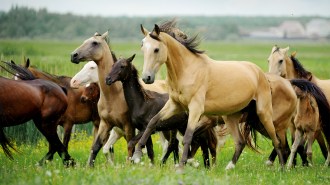 Archaeology
ArchaeologyNeandertals may have hunted in horse-trapping teams 200,000 years ago
A revised age for a German site indicates that our evolutionary cousins organized horse ambushes around 200,000 years ago.
By Bruce Bower -
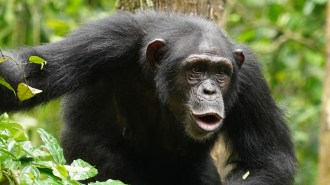 Animals
AnimalsChimp chatter is a lot more like human language than previously thought
Chimpanzees combine hoots, calls and grunts to convey far more concepts than with single sounds alone. It may be a first among nonhuman animals.
By Jake Buehler -
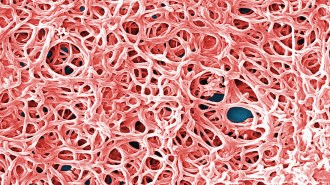 Health & Medicine
Health & MedicineHow to fight Lyme may lie in the biology of its disease-causing bacteria
The unusual molecular makeup of Borrelia burgdorferi, which causes Lyme disease, may hold clues for understanding and treating the tick-borne disease.
-
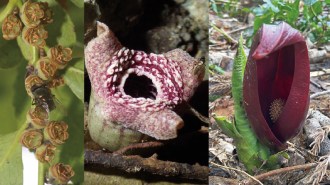 Plants
PlantsPutrid plants can reek of hot rotting flesh with one evolutionary trick
Some stinky plants independently evolved an enzyme to take the same molecule behind our bad breath and turn it into the smell of rotting flesh.
-
 Science & Society
Science & Society$1.8 billion in NIH grant cuts hit minority health research the hardest
News of NIH funding cuts have trickled out in recent months. A new study tallies what’s been terminated.
By Sujata Gupta -
 Health & Medicine
Health & MedicineTeens who want to quit vaping have another medication option
The drug varenicline, paired with counseling and text messaging support, helped teens and young adults abstain from vaping in a clinical trial.